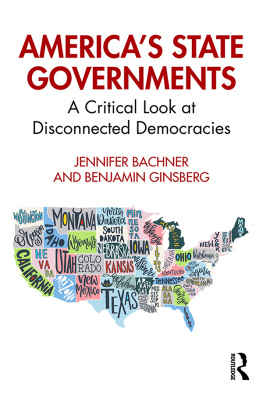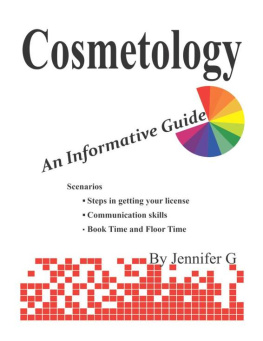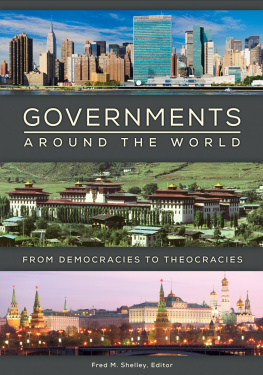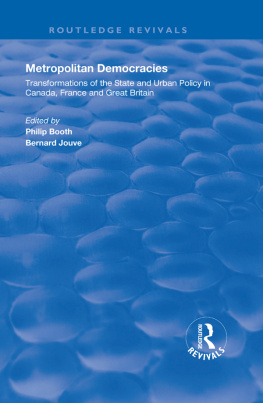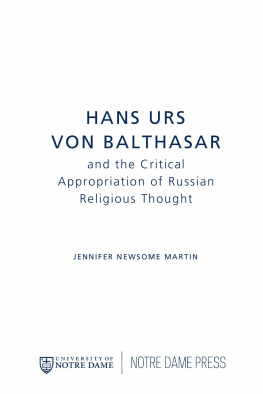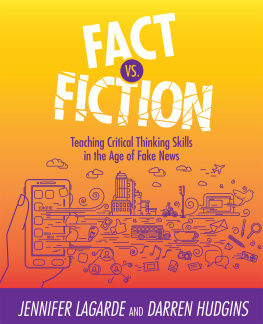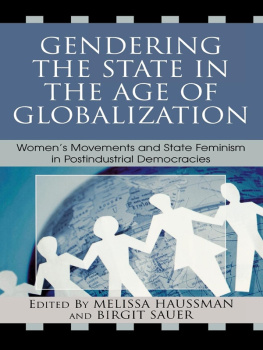Americas State Governments
This timely and important new work takes a critical look at government in the American states and illustrates the disconnect between state government institutions and their constituents. The text illuminates three basic political problems of state governments: weak constitutional and institutional foundations; a lack of civic engagement; and long histories of unchecked public corruption. In addition, the book explains why some states did and others did not respond promptly to the COVID-19 pandemic and examines Americas long-standing problem of police and prosecutorial misconductproviding a context for understanding the demonstrations and protests that rocked American cities in the summer of 2020 For students and citizens of state politics, the book concludes with a proposal aimed at civic literacy and action.
Jennifer Bachner is Director of the Program in Data Analytics and Policy at Johns Hopkins University.
Benjamin Ginsberg is the David Bernstein Professor of Political Science and Chair of the Center for Advanced Governmental Studies at Johns Hopkins University.
Praise for Americas State Governments
States play enormously important roles in the American federal system. But this fascinating account shows how short they fall in delivering equal access to democratic participation, effective policy in the public interest, or even basic justice, for both political and structural reasons. Entertainingly written and full of new data and eye-opening examples, this book shows how low citizen interest and knowledge, declining media coverage, institutional weakness, and insufficient ethics protections result in interest group dominance, unrepresentative policies, and sometimes outright corruption. A must-read for anyone interested in the state (no pun intended) of American governance.
Andrea Louise Campbell,
Massachusetts Institute of Technology
The major strength of this textbook is that it offers the freshest take on state politics in literally decades.
Douglas Harris,
Loyola University Maryland
Engaging and analytically challenging.
Ian J. Drake,
Montclair State University
Rather than focus on comparing states with one anotherthe dominant approach in state politics research and textsthis book emphasizes their overall role in the federal system and their commonalities. This is an interesting and compelling approach.
Michael Berkman,
Pennsylvania State University
First published 2021
by Routledge
52 Vanderbilt Avenue, New York, NY 10017
and by Routledge
2 Park Square, Milton Park, Abingdon, Oxon, OX14 4RN
Routledge is an imprint of the Taylor & Francis Group, an informa business
2021 Taylor & Francis
The right of Jennifer Bachner and Benjamin Ginsberg to be identified as authors of this work has been asserted by them in accordance with sections 77 and 78 of the Copyright, Designs and Patents Act 1988.
All rights reserved. No part of this book may be reprinted or reproduced or utilised in any form or by any electronic, mechanical, or other means, now known or hereafter invented, including photocopying and recording, or in any information storage or retrieval system, without permission in writing from the publishers.
Trademark notice: Product or corporate names may be trademarks or registered trademarks and are used only for identification and explanation without intent to infringe.
Library of Congress Cataloging-in-Publication Data
Names: Bachner, Jennifer, 1983- author. | Ginsberg, Benjamin, author.
Title: Americas state governments : a critical look at disconnected democracies / Jennifer Bachner and Benjamin Ginsberg.
Description: New York, NY : Routledge, 2020. | Includes bibliographical references and index. | Summary: This text critically analyzes government and governance in the American states. For students and citizens of state politics, the book concludes with a proposal aimed at civic literacy and action Provided by publisher.
Identifiers: LCCN 2020007491 (print) | LCCN 2020007492 (ebook) | ISBN 9780367468477 (paperback) | ISBN 9780367468484 (hardback) | ISBN 9781003031499 (ebook)
Subjects: LCSH: State governmentsUnited States.
Classification: LCC JK2408 .B24 2020 (print) | LCC JK2408 (ebook) | DDC 320.473dc23
LC record available at https://lccn.loc.gov/2020007491
LC ebook record available at https://lccn.loc.gov/2020007492
ISBN: 978-0-367-46848-4 (hbk)
ISBN: 978-0-367-46847-7 (pbk)
ISBN: 978-1-003-03149-9 (ebk)
To Daniel and Sandy
The authors are grateful to a number of individuals who provided advice and guidance as we wrote this book. These include: Edwin Bender, National Institute on Money and Politics; Ian Drake, Montclair State University; Kathryn Hill, Johns Hopkins University; Susan Long, Transactional Records Access Clearinghouse (TRAC); Jeffrey Milyo, University of Missouri; Ken Masugi, Claremont Washington Program; Pete Quist, National Institute on Money in Politics; Dorothea Wolfson, Johns Hopkins University; and Yunshan Ye, Johns Hopkins Libraries. At Routledge, we wish to thank everyone who assisted in the production of this book, particularly our editor, Jennifer Knerr.
Americas state governments are important. They provide the essential health, public safety, educational, transportation and other services upon which Americans depend every day. In times of crisis, there is a perception that Americans look to the federal government for help. But, the states, and especially their governors and executive departments, are the actual first responders when Americans are threatened by natural or man-made disasters. Every year, the states deal with floods, hurricanes, fires, shootings and public health problems. In the realm of public health, for example, the states have been fighting a little-noticed war against the spread of such diseases as drug resistant tuberculosis. Likewise, states have taken a leading role in combating opioid abuse and overdoses through a variety of policy initiatives. Under the United States Constitution, the federal government is a government of limited and enumerated powers. The states, however, as we shall see below, have a plenary police power, which gives them the right and duty to take necessary steps to protect the public health and safety. Under their police powers, the states can order quarantines, require vaccinations and, if necessary, order public gatherings and businesses closed.
The 2020 corona virus crisis underscores the importance of the states. In March 2020, cases of COVID-19, which had already caused thousands of deaths in Asia and Europe, began to appear in the U.S. as well. In the first weeks, the federal government was slow to craft a response. Several state governors, however, moved quickly to deal with what they knew would be the public health emergency soon facing their states. As COVID-19 struck, former governor George Pataki of New York observed, Right now the governors are in the forefront and appropriately so.
Early in March some states began to implement policies of social distancing, discouraging large gatherings in order to slow the spread of the virus. Initially, state governments limited themselves to making non-binding recommendations to their citizens but soon saw that more stringent measures would be needed. Ohio Governor Mike DeWine postponed Ohios scheduled primary elections, a step copied by Georgia, Kentucky, Louisiana and Alabama. Governor Kate Brown of Oregon, a state that now votes entirely by mail, urged a general shift to mail-in balloting in view of the possibility that voters waiting in line to cast their ballots might spread the disease.

